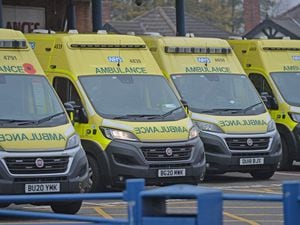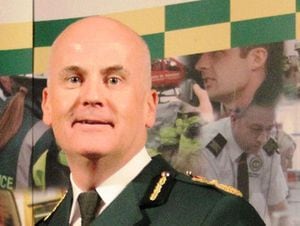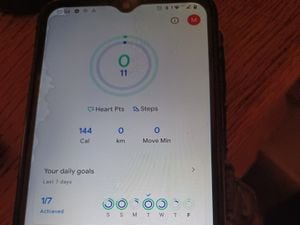West Midlands ambulance boss praises 'first-class' staff in annual report after 'challenging year'
The West Midlands Ambulance Service has been praised for its performance in the face of hours of delays in handing over patients at hospitals.

The service's chief executive officer, Professor Anthony Marsh, praised all members of staff, volunteers such as community first responders and partners for working hard.
Delivering his annual report Professor Marsh said: "It has been a really challenging year for staff with the country coming out of the pandemic and pressure on A&E departments.
"They have continued to deliver first-class care across the West Midlands.
"We are clearly focussed on delivering for our patients and it is that underpinning ethos that forms the foundation of our successful organisation."

He revealed that activity for the service was less than what the service was dealing with pre-Covid.
"The pressure has come from the acuity of patient. Acuity is much more intense and we have also been dealing with very substantial delays in handover times to hospital."
The annual report showed that the service's initial response to 999 calls was the fastest in the country, not only in the West Midlands but for the other ambulance services that it answers calls for.
In the first four months of this year there were only 12 calls that had over two minutes delay in answering, he said.
"There has been a big increase in the number of patients that we can deal with over the telephone safely. We have a specialist team of paramedics in our control room, providing advice on the phone or making referrals to other parts of the NHS rather than the patient having to go to A&E."
However the annual report showed that there continued to be substantial problems with hospital handovers.
The service increased its risk level to its highest as crews were stuck outside hospitals and Professor Marsh said that this had had a huge effect on category one and two call-out performances.
"Notwithstanding the challenges, the emergency performance did well," he said.
Those at the annual meeting heard that there had been a 29 per cent increase in people writing in to thank the service.
"It is good to see and increase in compliments."





